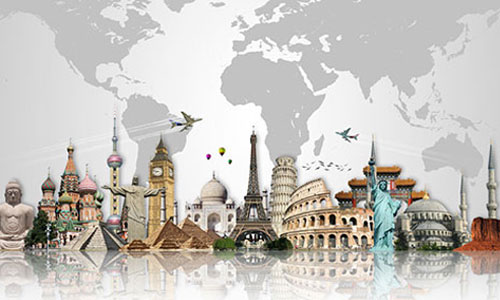
A workshop on Chinese outbound tourism was held at the International Tourismus-Boerse (ITB) in Berlin on Wednesday, the first day the world's biggest tourism trade fair opened to visitors.
The discussion focused on China's "second wave" of outbound tourists and their new destinations and new consumption patterns.
Panelists from Europe and Asia exchanged their views on the question "How can established destinations react and what will the future of Chinese outbound tourism look like?"
Why Chinese tourists matter?
In 2014, the number of Chinese tourists traveling abroad increased by 19.5 percent year on year to 109 million, topping a threshold of 100 million for the first time in history, according to China National Tourism Administration (CNTA). "
China is the world's largest outbound market since 2012," said Madrid-based United Nations World Tourism Organization (UNWTO).
During the most recent Chinese Lunar New Year holiday, 5.18 million Chinese, 10 percent more than in the previous year, took trips to Thailand, Japan, the United States, and countries in Europe where they were not surprised to see Mandarin-speaking staff in shopping malls and Chinese TV programs in hotels. "
Now the whole European industry pays great attention to Chinese tourists' shopping habits and consumption demands," said Yu Jin, the chief operations officer of Caissa Touristic (Group) AG in Hamburg.
At 12 of its retail outlets across Europe, London-based McArthurGlen Group launched a series of promotions during the Chinese Lunar New Year holiday, advertising in Chinese social media and providing extra discounts in its stores.
In New York, high-end department store Bloomingdale's put up decorations featuring a giant Chinese coin towering above a blanket of red flowers.
In Berlin, Arkaden shopping mall in Potsdamer Platz cooperated with China Cultural Center in Berlin and hosted an exhibition of Chinese handicrafts and art performances.
It was not always like this. Shi Xiang, director of CNTA in Frankfurt, could still remember when Western countries showed a lack of interest in Chinese tourism promotion in early 1980s. "
It was a one way road back then," Shi said, "There was only inbound tourism in China. They (Western officials) thought we were appealing to them for customers and money."
"Now it's the opposite," he added, "They welcome the 100 million Chinese tourists who contribute to their economy."
Data from CNTA showed, the number of Chinese tourists traveling abroad in 2014 was nearly 13 times the level in 1998.
In 2013, Chinese tourists spent 129 billion U.S. dollars abroad, more than any other source market in the world, UNWTO said. "
Chinese customers have a very strong purchasing power," said Sonja Roessler, the tourism marketing executive in McArthurGlen's Designer Outlet Berlin, adding that the shopping center would analyze how to improve the service for Chinese customers in the future.
At all McArthurGlen's 20 designer outlets in Europe, sales to Chinese tourists soared by more than 35 percent in 2014 and have more than quadrupled over the past four years. "
China is a huge market with great potential for Germany, and contributes the fastest growth of tourists from Asia," said Jia Xiaoli, media manager at German National Tourist Board.
In the first quarter of 2014, the average single expenditure of Chinese tourists in Germany was 575 euros (about 642 U.S. dollars) per person, the highest in all the countries.
Analysts believe the upward trend of Chinese outbound tourism will continue in 2015, thanks to a favorable visa environment and more supportive policies, and information technology will also boost growth of overseas traveling.
"The prospect of China outbound tourism is bright," Shi said, adding that it would benefit not only economies in destination countries, but also mutual understanding, and cultural exchanges.





